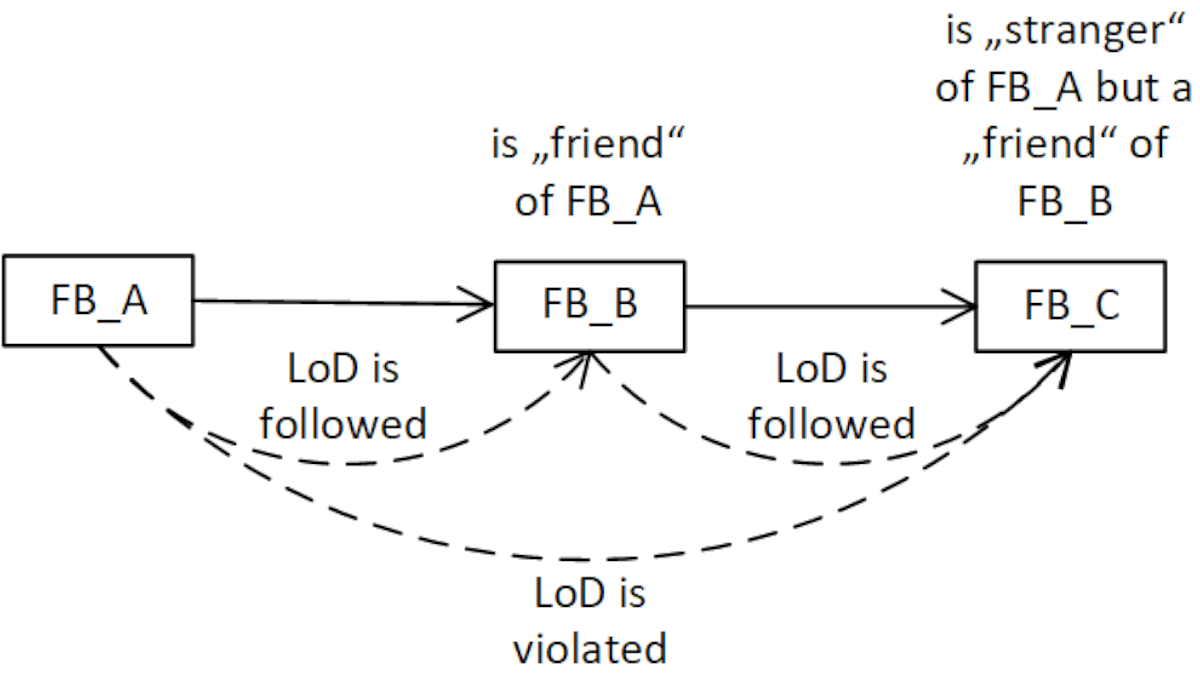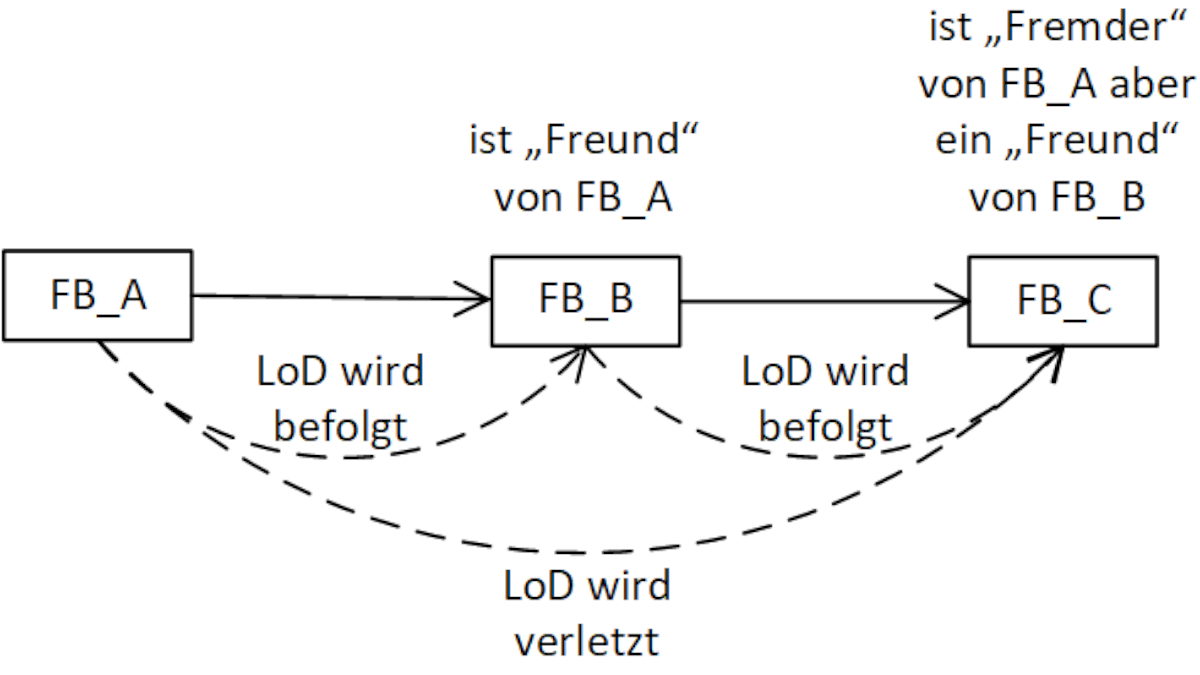Due to the regular calls for articles about the SOLID principles, I decided some time ago to offer this series in the form of a small book. This book can now be ordered (as a paperback and as an e-book) from all well-known bookshops and digital platforms. In addition to the SOLID principles, the book also addresses the KISS, DRY, LoD and YAGNI principles.
Continue reading “Book release „Use of the SOLID principles with IEC 61131-3“”Tag: TwinCAT
IEC 61131-3: The Principles KISS, DRY, LoD and YAGNI
The 5 SOLID principles were presented in the previous posts. In addition to the SOLID principles, however, there are other principles that are also briefly presented here. What all these principles have in common is the goal of making software more maintainable and more reusable.
Continue reading “IEC 61131-3: The Principles KISS, DRY, LoD and YAGNI”IEC 61131-3: Die Prinzipien KISS, DRY, LoD und YAGNI
In den vorherigen Posts wurden die 5 SOLID-Prinzipien vorgestellt. Neben den SOLID-Prinzipien gibt es noch weitere Prinzipien, von denen ich einige ebenfalls kurz vorgestellen möchte. All diese Prinzipen haben das gemeinsame Ziel, die Wartbarkeit und die Wiederverwendbarkeit von Software zu verbessern.
Continue reading “IEC 61131-3: Die Prinzipien KISS, DRY, LoD und YAGNI”Buchveröffentlichung „Anwendung der SOLID-Prinzipien mit der IEC 61131-3“
Auf Grund der regelmäßigen Artikelaufrufe über die SOLID-Prinzipien hatte ich mich vor einiger Zeit dazu entschlossen, diese Serie auch in Form eines kleinen Buches anzubieten. Ab sofort kann dieses Buch (gedruckt, als auch als E-Book) in allen bekannten Buchhandlungen und digitalen Plattformen bestellt werden. Neben den SOLID-Prinzipien werden in dem Buch auch die Prinzipien KISS, DRY, LoD und YAGNI angesprochen.
Continue reading “Buchveröffentlichung „Anwendung der SOLID-Prinzipien mit der IEC 61131-3“”IEC 61131-3: SOLID – The Open/Closed Principle
Inheritance is a popular method for reusing existing function blocks. It enables new methods and properties to be added or existing methods overwritten without requiring access to the source code for the base function block. Designing software so that it can be extended without modifying the existing code is the key concept behind the Open/Closed Principle (OCP). But using inheritance also has disadvantages. These disadvantages can be minimised by employing interfaces – and this is not the only advantage of this method.
Continue reading “IEC 61131-3: SOLID – The Open/Closed Principle”IEC 61131-3: SOLID – Das Open/Closed Principle
Vererbung ist eine beliebte Methode, um bestehende Funktionsblöcke wiederzuverwenden. Dadurch lassen sich Methoden und Eigenschaften hinzufügen oder bestehende Methoden überschreiben. Hierbei ist es nicht notwendig, den Quellcode des Basis-FB zur Verfügung zu haben. Software so zu designen, dass Erweiterungen möglich sind, ohne die vorhandene Software zu verändern, ist die Grundidee des Open/Closed Principle (OCP). Doch die Anwendung von Vererbung hat hierbei auch Nachteile. Der Einsatz von Schnittstellen minimiert diese Nachteile und bietet zusätzliche Vorteile.
Continue reading “IEC 61131-3: SOLID – Das Open/Closed Principle”IEC 61131-3: SOLID – The Interface Segregation Principle
The basic idea of the Interface Segregation Principle (ISP) has strong similarities with the Single Responsibility Principle (SRP): Modules with too many responsibilities can negatively influence the maintenance and maintainability of a software system. The Interface Segregation Principle (ISP) focuses on the module’s interface. A module should implement only those interfaces that are needed for its task. The following shows how this design principle can be implemented.
Continue reading “IEC 61131-3: SOLID – The Interface Segregation Principle”IEC 61131-3: SOLID – Das Interface Segregation Principle
Der Grundgedanke des Interface Segregation Principle (ISP) hat starke Ähnlichkeit mit dem Single Responsibility Principle (SRP): Module mit zu vielen Zuständigkeiten können die Pflege und Wartbarkeit eines Softwaresystem negativ beeinflussen. Das Interface Segregation Principle (ISP) legt den Schwerpunkt hierbei auf die Schnittstelle des Moduls. Ein Modul sollte nur die Schnittstellen implementieren, die für seine Aufgabe benötigt werden. Im Folgenden wird gezeigt, wie dieses Designprinzip umgesetzt werden kann.
Continue reading “IEC 61131-3: SOLID – Das Interface Segregation Principle”IEC 61131-3: SOLID – The Liskov Substitution Principle
„The Liskov Substitution Principle (LSP) requires that derived function blocks (FBs) are always compatible to their base FB. Derived FBs must behave like their respective base FB. A derived FB may extend the base FB, but not restrict it.” This is the core statement of the Liskov Substitution Principle (LSP), which Barbara Liskov formulated already in the late 1980s. Although the Liskov Substitution Principle (LSP) is one of the simpler SOLID principles, its violation is very common. The following example shows why the Liskov Substitution Principle (LSP) is important.
Continue reading “IEC 61131-3: SOLID – The Liskov Substitution Principle”IEC 61131-3: SOLID – Das Liskov Substitution Principle
„Das Liskov Substitution Principle (LSP) fordert, dass abgeleitete FBs immer zu ihren Basis-FB kompatibel sind. Abgeleitete FBs müssen sich so verhalten wie ihr jeweiliger Basis-FB. Ein abgeleiteter FB darf den Basis-FB erweitern, aber nicht einschränken.“ Dieses ist die Kernaussage des Liskov Substitution Principle (LSP), welches Barbara Liskov schon Ende der 1980iger Jahre formulierte. Obwohl das Liskov Substitution Principle (LSP) eines der einfacheren SOLID-Prinzipien ist, tritt deren Verletzung doch sehr häufig auf. Warum das Liskov Substitution Principle (LSP) wichtig ist, zeigt das folgende Beispiel.
Continue reading “IEC 61131-3: SOLID – Das Liskov Substitution Principle”






